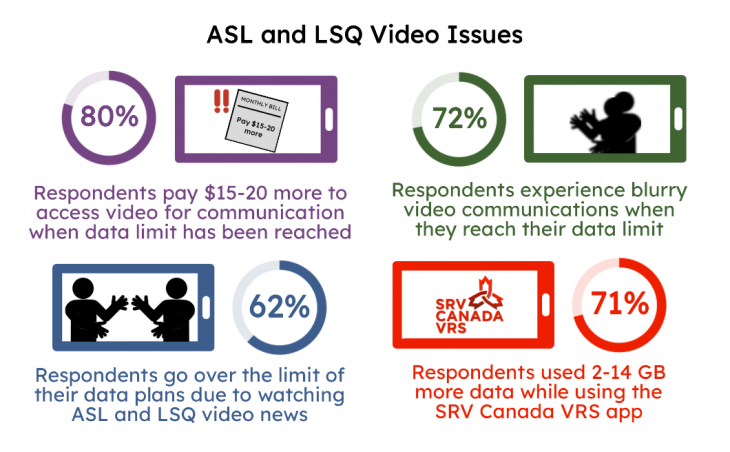
OTTAWA – The CRTC is directing wireless service providers to engage in “regular consultations” with disabled Canadians and to file annual reports about the outcome of those discussions.
The reports must be filed to the regulator starting June 1, 2023 and must address, among other issues, which disability communities took part in the discussions, the insight gleaned, changes the provider has put in place, the number of subscribers on accessible plans, and the make-up of accessible plans available in the market in the course of the year, including those that were withdrawn.
The legally binding order, released Thursday, is a result of a years-old exploration into barriers to affordable and accessible telecommunications services for Canadians living with disabilities.
The CRTC found that while there was a “significant increase in subscribers to accessible plans in recent years,” the 14,453 subscribers on the plans is “significantly lower than could have been expected.”
The regular consultations with disabled Canadians and groups representing their interests prescribed by the commission is intended to “assess whether accessible plans are offered and promoted in a way that fully meets their needs and if not, what changes are required to ensure barrier-free access to these plans,” the CRTC said Thursday.
The consultations should obtain views from different groups representing various disabilities across different regions served by the provider, the regulator said, recommending that an industry group representing the providers coordinate the consultation sessions on behalf of multiple providers.
The regulator is also pressing for providers to explore providing financial support for community representatives for these consultations. The regulator found, with submissions from disability groups, that there is an “intersectionality” of disabilities with lower-income status.
Some of the carriers in the proceeding opposed eliminating the verification measures used to ensure the person who is signing up for a service intended for a disabled Canadians actually qualifies.
While the CRTC said there is some concern about possible abuse of that system, it said that if carriers decide to maintain verification, it must make it as easy as possible. In other words, if there are verification methods that require multiple hoops the person has to go through, this would not qualify; a membership in an accessibility group would, said the CRTC as an example.
The approach and progress on verification must also be in the annual reporting.
The regulator also touched on video relay service, which providers Canadians with hearing and speech disabilities the ability to communicate using sign language. A problem identified by groups representing disabled Canadians said internet service providers were slowing traffic down after a certain amount of data was used.
The CRTC, while agreeing with the telecoms that some network traffic management is required, said the carriers must ensure that speeds are not throttled below the minimum standard of 1.3 Mbps once the data cap has been reached.
Imagine courtesy of the Deaf Wireless Canada Committee.


